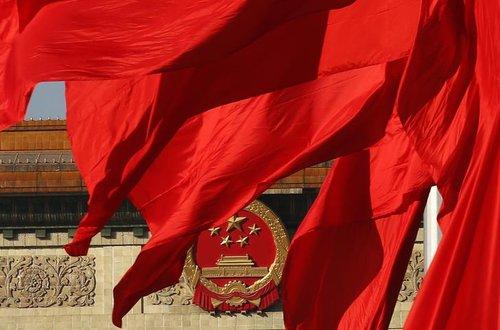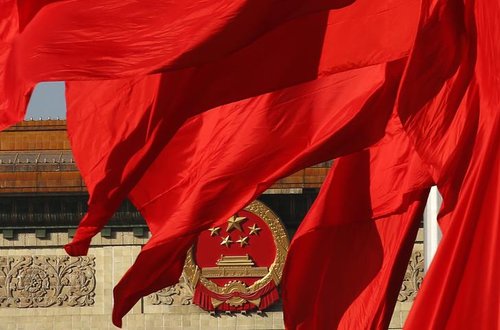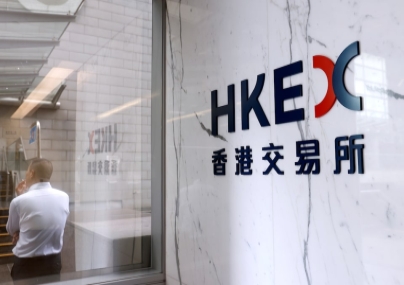
China is set to publish a planning document aimed at improving the country’s inefficient state-led firms by harnessing the power of the market, subject to the government’s enduring reluctance to cede too much control over the economy.
One year after President Xi Jinping called for measures to diversify ownership and improve management at state-owned enterprises (SOE), the document will provide new nationwide principles to draw non-state capital and grant managers more freedom from political interference, according to officials briefed on the plan.
The guidelines, expected within weeks, will fall short, however, of the most far-reaching measures, such as privatisation and market deregulation, which might challenge the state’s pre-eminence in economic matters.
“The government wants state enterprises to work more effectively, but the government likes state capitalism,” says Joe Zhang, former chairman of small business lender Wansui Micro Credit and one-time deputy head of China investment banking at UBS, who has not seen the document.
“This is a piecemeal effort,” he says of the reform programme.
Even so, Chu Xuping, director of the research centre at State-owned Assets Supervision and Administration Commission (SASAC), the ministry-level body that directly oversees China’s 113 central government-controlled conglomerates, says these would be significant measures.
“This round of reform isn’t designed to further protect state-owned enterprises, but allow the market to play a decisive role and make all companies compete on a level playing field,” he says.
Improving the efficiency at the SOEs, which dominate China’s economy, is critical as the country struggles to maintain the breakneck pace of growth it has delivered for two decades.
Stephen Sun, head of China equity strategy at HSBC Global Research, says return on equity, an efficiency measure, is less than 5 percent for local state firms and about 10 percent for central SOEs, compared with about 15 percent for private businesses listed in Hong Kong.
“There’s a huge performance and operational efficiency gap,” Sun says.
Back to topOff limits
The guidelines, which follow a year of pilot programmes at central and local government-backed entities, will encourage the separation of business from politics through the appointments of independent company managements and boards of directors, which would be answerable to independent state asset managers.
They are also expected to promote stake sales to portfolio and private investors, particularly in the country’s most competitive sectors, though strategic industries would remain largely off limits, especially to foreign investors.
For sectors involved in national security, there “certainly won’t be opening,” says Zhang Chunxiao, professor of economics at Peking University and adviser to SASAC, while there will be restricted opening for public service industries such as utilities.
Beijing is considering publishing a “negative list” of the strategic sectors and businesses restricted to domestic investment, says Zhang.
A landmark trial for mixed ownership took place in September, when state-controlled oil giant Sinopec Corp sold 30 percent of its retail business to 25 big financial companies for $17.5 billion.
While foreign investors such as Asia private equity firm RRJ Capital were allowed to take a small stake in the deal, China’s biggest asset managers, including Harvest Capital Management Co, China Life Insurance Co and People’s Insurance Group of China Co Ltd, took the lion’s share.
Such transactions might make financial sense for foreign buyers, but would not necessarily improve operational efficiency, investors familiar with the deal say.
Back to topOpen door
Despite the restrictions, Roger Liu, the deals private equity leader for PwC China and Hong Kong, says foreign private equity and direct investors were keenly watching developments.
“SOE reform will offer tremendous opportunity for various types of capital, including domestic and private sector capital,” says Liu, who has played a role in transactions and reform discussions with local firms and governments.
At a State Council meeting last month, Premier Li Keqiang said China would “open the door” for non-state investment in culture, infrastructure and agriculture.
Drafting of the guidelines is being spearheaded by President Xi’s comprehensive reform office, which in October sent teams to various provinces, municipalities and state-owned firms to conduct assessments.
Local reports say reaching a consensus has been complicated by differing political interests at the national and local level and bureaucratic rivalries among government bodies including SASAC, the finance ministry and top planning agency, the National Development and Reform Commission.
While the government wants to promote independent management at SOEs, it has also weighed the competing priority of stamping out corrupt practices at state firms, where executives have regularly enriched themselves.
The official Xinhua News Agency says 252 domestically listed firms with state-owned involvement spent a total of 6.53 billion yuan on “hospitality” in 2012, while Reuters has calculated that at least 55 SOE leaders have been put under investigation since last year’s Communist party meeting.
“No reform plan can solve all of the problems,” says professor Zhang, “More will be needed.”
----------------------------------------------------------------------------------------------------------------------------------
"This is kind of piecemeal… [The draft list] represents what has been happening over the past few years."
- Todd Wang, DLA Piper
Back to top
China draft rules ease limits on foreign investment
China is moving to raise its global competitiveness by loosening restrictions on foreign investment in more manufacturing and services sectors, the country's top regulator said.
In a draft foreign investment catalogue, China's National Development and Reform Commission (NDRC) cut the number of sectors where China limits foreign investment to 35 from 79, opening up areas such as real estate, steel, oil refining, paper making and premium spirits.
The draft catalogue, the latest revision of a list first distributed in 2011, also removes restrictions on foreign participation in some financial services, including finance companies and insurance brokerages, which are still subject to Chinese regulations.
Beijing, however, will continue to bar foreign investment in 36 key sectors, the draft said, with Chinese legal affairs consulting, tobacco and cultural relics businesses added to the list.
The NDRC said that the measures were aimed at adapting to a more globalised economy, and would help China actively hasten its "opening up" process and improve transparency.
"This is kind of piecemeal," says Todd Wang, an attorney at DLA Piper, who specialises in U.S.-China business transactions, "[The draft list] represents what has been happening over the past few years."
The European Union Chamber of Commerce in China said the draft catalogue fell short of expectations and appeared "to be another incremental development" for some foreign firms.
"The removal of the investment catalogue altogether in favour of a short negative list and increased opening in the service sectors would have been more ambitious," the European Chamber said in a statement.
Beijing is keen to improve China's inefficient state-owned firms by adopting market friendly policies to stave off slowing growth. But despite plans for reform of state-owned enterprises, the government has also been reluctant to cede too much control over the economy.
"The focus will be on opening up manufacturing and services sectors to the outside," the NDRC said in a statement on its website, adding that the move would help boost China's international competitiveness.
"Allowing foreign investment to enter industries with overcapacity and outdated technology can accelerate efforts to upgrade the industrial structure through market competition," Long Guoqiang, an NDRC researcher, told the official Xinhua News.
The NDRC is seeking feedback on the proposed revisions until Dec. 3, it said. China has issued a similar list since 1995, and has been revising it every three years. The current version was issued in 2011, state news agency Xinhua said.
In total, the draft lists 349 sectors that welcome foreign investment, including vocational training, homes for seniors, and services for children and the disabled.
Back to top


